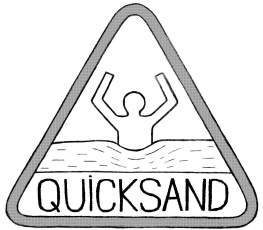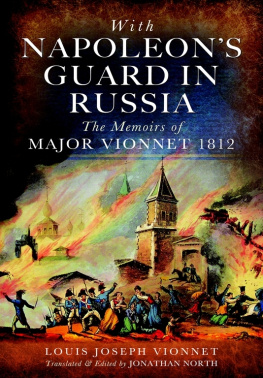N APOLEON S C ONQUEST OF P RUSSIA -1806
W ITH AN INTRODUCTION BY
F IELD M ARSHAL E ARL R OBERTS V.C., K.G., ETC
B Y
F. L ORRAINE P ETRE O.B.E.
WITH SEVEN MAPS AND BATTLE PLANS AND N UMEROUS P ORTRAITS AND OTHER ILLUSTRATIONS
This edition is published by PICKLE PARTNERS PUBLISHING
Text originally published in 1904 under the same title.
Pickle Partners Publishing 2011, all rights reserved. No part of this publication may be reproduced, stored in a retrieval system or transmitted by any means, electrical, mechanical or otherwise without the written permission of the copyright holder.
Publishers Note
Although in most cases we have retained the Authors original spelling and grammar to authentically reproduce the work of the Author and the original intent of such material, some additional notes and clarifications have been added for the modern readers benefit.

Contents
AUTHOR'S PREFACE
THE first object of this Preface is a grateful acknowledgment of the great kindness of Lord Roberts in consenting to write his valuable introduction to this volume, and in sparing the time necessary for doing so. What he has been good enough to write obviates any necessity for further allusion, on the author's part, to the scope and objects of the book.
As some excuse for the appearance of the history of a campaign generally supposed to be so well known as that of Jena, it may be pointed out that there has been no detailed account of it written in English since the publication of the full information now available. Hoepfner's Krieg von 1806-1807 long ago provided much official information on the Prussian side, but it was not till some sixteen or eighteen years ago that Captain Foucart's Guerre de Prusse gave to the world the many valuable documents bearing on the subject in the French War Office, other than those which had already appeared in the Correspondance de Napoleon I er . The work of Colonel Montb gives the official information on the Saxon side, and Lettow-Vorbeck's Krieg von 1806-1807 is based on the books of Hoepfner, Foucart, and Montb, as well as on further researches in the Prussian offices. I have not overburdened the volume with notes and references, as I believe that the former are apt to be overlooked, or to be an object of annoyance to most readers, and that it is better to incorporate them in the text. As for references to official documents, the reader may assume that they are all, unless otherwise stated, to be found in the three German and one French work above-named.
The majority of the illustrations are reproduced from works in the unique Napoleon collection of Mr. A. M. Broadley of The Knapp, Bridport, from whom Mr. John Lane obtained courteous permission to utilise them.
The remaining six views, of scenes in the earlier part of the campaign, were taken by the author in September 1906, almost exactly a century after the events which occurred during Napoleon's invasion of Saxony. Across the lower part of the Saalfeld battlefield now runs a railway; but the fields on which were fought the decisive battles of Jena and Auerstdt are almost precisely as they were one hundred years ago. As the camera was rested on the Napoleonstein, marking the spot where Napoleon stood with Lannes on the afternoon of the 13th October 1806, it required but a slight effort of the imagination to conjure up a vision of the two, and of what they saw. All around them was the vanguard of Lannes' corps, whilst, from the steep descent towards Jena behind them, the rest of the corps hurried up to hold the dangerous position on the angle of the plateau. Half a mile in front were Tauenzien's Prussians, taking up their positions on the Dornberg, and at Lutzeroda and Closewitz. Far away white specks showed where Hohenlohe's camp stood in fancied security. So, too, as the photograph of the Isserstadt-Vierzehnheiligen position was taken, from close to the spot whence Napoleon watched the battle after II A.M. on the 14th October, it was easy to picture the desperate struggle at the villages, and the mighty avalanche of cavalry, with Murat at its head, which descended on the broken army of Hohenlohe. At Hassenhausen there rose before the imagination the desperate struggle of Gudin's infantry, the ruin of the Prussian cavalry, and, finally, the defeat, by a force scarcely more than half their strength, of the flower of the Prussian army.
F. L. P.
20th January 1907.
INTRODUCTION
GENERAL HAMLEY says in his Introduction to the "Operations of War," a book which thirty years ago gave a much needed stimulus to the study of Military History in this country, "No kind of history so fascinates mankind as the history of wars." But he deplores the fact that it was the romantic aspect of military history by which the many were attracted rather than the knowledge such history should teach. "Reading," he adds, "can be profitable only in proportion to the means the student may possess of judging of the events of the past, and deducing from them lessons for the future."
Since the time at which Hamley wrote, a change has taken place in the study of Military History (at least so far as soldiers are concerned), which would have rejoiced his heart; for the rising generation of soldiers read it now with a keen desire to profit by its practical teaching as well as with intense interest in the romance of war.
But, I think, what is even more satisfactory to the lover of national prosperity is the knowledge that the study of Military History is not confined to military men, but is also engaging the attention of literary civilians, as instanced by the many instructive accounts of campaigns that have been published by them of late years. Satisfactory because it shows that men of thoughtful minds recognise that the lessons to be learnt from the histories of wars, if properly understood, are as valuable to the civilian as to the soldier, and that the history of wars is practically the history of nations; for is not war still the final Court of Appeal when nations are not in agreement, when national interests violently clash, and when national honour is at stake? It has been so from time most remote, and will be so to the end of time. Arbitration on issues of a secondary importance has been useful in the past, and no doubt will often render good service to the cause of humanity and civilisation in the future. But where vital principles are involved, and it may be the existence of a nation is imperilled, the appeal assuredly will always be to arms, and woe to that nation that does not recognise and appreciate this, and does not hold itself prepared to fight, when the need arises, in defence of its honour, its rights, and its liberty.
One cannot read the story of the Jena Campaign, as told by Mr. Petre, without realising from the tragedy of Prussia in 1806, as depicted therein, a tragedy without a parallel in modern timesthe fate, amazing in its swiftness and appalling in its severity, which may at any moment overtake a state which exists in fancied security, based on traditions of a heroic past, and wrapped in a selfish indifference, hoping, ostrich-like, to escape the danger it refuses to see.
It is just one hundred years ago since the stirring events recorded in this book took place. A united Empire of Germany did not then exist, but there was a strong compact kingdom of Prussia, which had been established by the military genius of Frederick the Great. That grand commander had been dead only just twenty years, but in that time events had happened which had altogether changed the political and military situation in Europe. As the result of the French Revolution France had been engaged in incessant wars for fifteen years, and Napoleon, who had risen to power by his masterful treatment of several campaigns, had reorganised the French army, revolutionised the art of war, and, striking down one adversary after another, had more or less rearranged the map of Europe.










